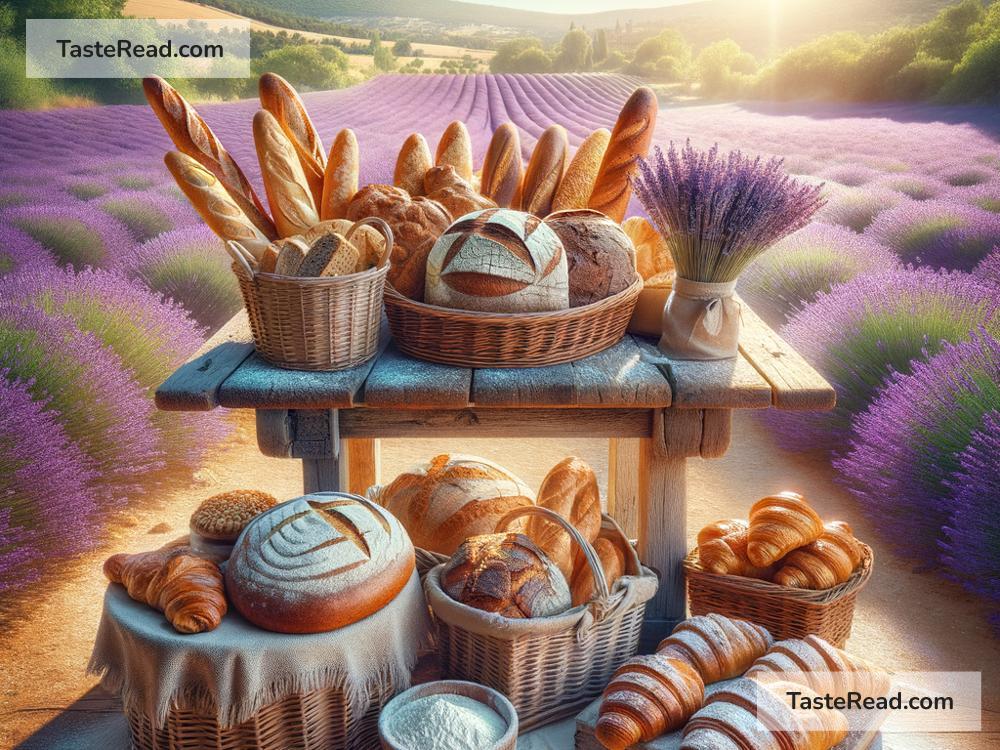Celebrating Artisanal Bread Traditions in Rural Provence
In the heart of southern France, where lavender fields stretch as far as the eye can see and charming villages are nestled among rolling hills, you’ll find a place where time seems to slow down. Rural Provence is a region known for its scenic beauty, rich culture, and delicious food. Among its many treasures, one stands out: artisanal bread. In Provence, bread isn’t just food—it’s art, tradition, and community, all baked into a humble loaf.
A Tradition Rooted in History
For centuries, bread has been an essential part of life in Provence. Villagers baked bread with simple ingredients—flour, water, salt, and natural yeast—and passed down their techniques from one generation to the next. It wasn’t just about nourishing the body; it was about creating something meaningful. Bread symbolized connection to the land, to neighbors, and to family.
In rural Provence, bread-making tradition is deeply influenced by its landscape. The wheat fields of the region are golden, and the water from mountain springs is pure. These local ingredients give the bread its distinct flavor and texture. Unlike mass-produced bread made in giant factories, artisanal bread is crafted slowly, by hand, with care and attention to detail.
The Importance of the Village Bakery
At the heart of many Provençal villages is the local bakery, or “boulangerie.” This is more than just a place to buy bread—it’s the soul of the community. Each morning, villagers walk to the boulangerie to pick up a fresh baguette or loaf for the day. Friendly chatter fills the air as neighbors catch up and greet the baker, often calling them by name.
The baker plays an important role in keeping artisanal traditions alive. Bakers in rural Provence don’t just make bread; they honor the techniques passed down through generations. They use wood-fired ovens, hand-kneading methods, and carefully timed fermentation to create bread that is both delicious and unique. Biting into a crusty loaf from a Provençal boulangerie is like tasting a piece of history.
Types of Bread You’ll Find in Provence
Provence is known for its wide variety of local breads, each with its own story. Here are a few examples:
-
Pain de Campagne: This is the classic French “country bread.” Made with a mix of white and whole wheat flour, it has a chewy texture and a crisp crust. Pain de campagne pairs perfectly with cheese, olives, and wine.
-
Fougasse: Often called the Provençal version of focaccia, fougasse is a flatbread shaped like a leaf. It’s stuffed or topped with delicious ingredients such as olives, garlic, herbs, or even cheese. Fougasse is often served as a snack or appetizer.
-
Pain d’Épices: This bread is flavored with spices and honey, giving it a warm, sweet taste. It’s less common than other types of bread but loved as a treat during holidays and festivals.
Each loaf has its own charm, and tasting them is a journey in itself. Bread in Provence reflects the region’s flavors and traditions, making every bite a celebration.
A Way of Life
Artisanal bread-making in rural Provence is more than a craft—it’s a way of life. Bakers rise in the early hours of the morning, working long before the sun comes up. Their work is physically demanding but also filled with pride and passion. Every dough they shape and loaf they pull from the oven is a labor of love.
Likewise, for those who live in Provence, the daily ritual of buying bread is about more than convenience. It’s a moment to connect with the village, to show support for local bakers, and to embrace traditions that have stood the test of time.
Festivals and Celebrations
Bread-making is so important in Provence that it’s often celebrated in festivals. Villages organize events where bakers showcase their skills, and people gather to taste different types of bread. These festivals also include music, dancing, and sometimes workshops where visitors can learn how to bake their own bread.
One of the most popular events is the “Fête du Pain,” or Bread Festival. During this celebration, bakers from across the region demonstrate their techniques, and ovens are fired up to bake bread on the spot. It’s a joyful occasion that brings everyone together.
Why Artisanal Bread Matters Today
In today’s fast-paced world, where convenience often wins over tradition, the artisanal bread traditions of rural Provence remind us of the value of slowing down. They show us the importance of craftsmanship, community, and connection to nature.
Choosing artisanal bread over factory-made is also better for the planet. Local bakers often use sustainable practices, and buying from small businesses supports the local economy. Plus, the taste of artisanal bread—rich, flavorful, and hearty—is unbeatable.
A Visit to Provence
If you ever find yourself in rural Provence, don’t miss the chance to explore its bread traditions. Visit a local boulangerie, talk to the baker, and try the different types of bread. Take in the sights and smells of fresh loaves coming out of the oven.
You’ll experience something truly special—more than just the taste of bread. You’ll feel the warmth of a community, the richness of history, and the joy of traditions that have been cherished for generations. In Provence, artisanal bread is not just food—it’s a story, and one worth celebrating.


